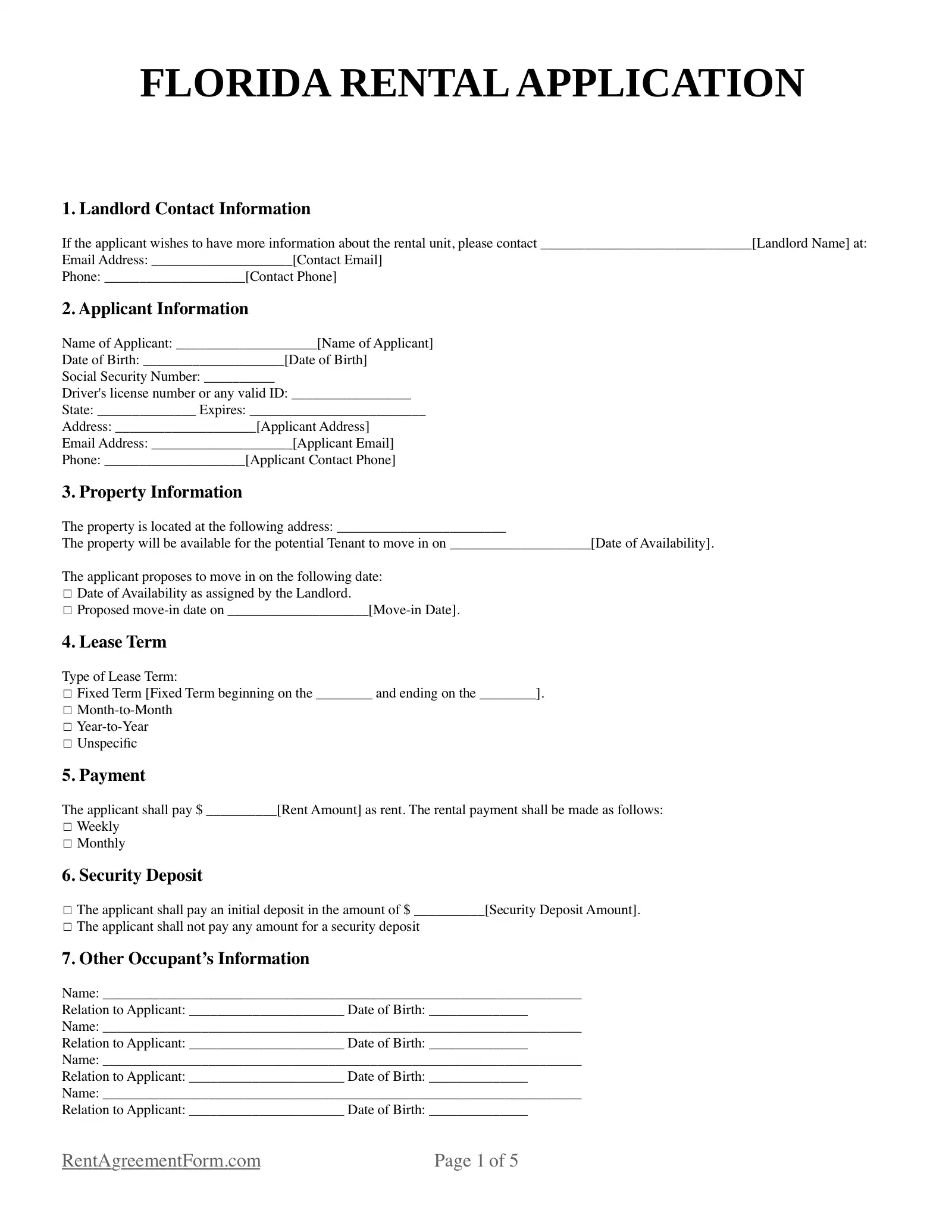North Carolina Rental Application Form
When a person finds their ideal rental property in North Carolina, the first thing they must do is submit a North Carolina rental application form.
The prospective tenant must be genuinely invested in the rental property since the application form must be submitted with a non-refundable application fee. The landlord will use the fee to cover the expense of screening the applicant and doing background checks.
The application form provides a space for the landlord to provide important details about the property available for rent. However, the majority of the form must be accomplished by the prospective tenant.
Details such as employment history and residential history are two of the most critical elements of a rental application form. Employment history is vital for the landlord to assess whether the applicant has the capacity to pay rent on time. A background check on an applicant’s previous residences will reveal information about payment history and if previous landlords have experienced issues with their leases.
Landlords also explore if the applicant has good standing with utility companies and check in with references to determine their general personality and attitude.

Maximum Rental Application Fee for North Carolina
There is no limit to how much a North Carolina landlord can collect as the rental application fee.
The national average is around $30, and it is non-refundable. If the landlord charges more than that, the best a prospective tenant can do is ask the landlord how many people have already applied. This is a good metric to decide whether the application is worth pursuing. The more applicants there are, the less chance of getting the rental property.
Security Deposits in North Carolina
The standard lease agreement in North Carolina is for a year. A landlord can charge a maximum security deposit equivalent to two months of rent.
For month-to-month arrangements, the maximum is worth a month and a half in rent. For weekly arrangements, the maximum security deposit is two weeks’ worth of rent.
The security deposit is the landlord’s fallback if the tenant fails to pay rent or if they leave behind damage to the property at the end of the tenancy (NC Gen Stat § 42-51 (2021)).
Returning Deposits in North Carolina Rental Applications
The landlord has 30 days to return the security deposit to the tenant after the tenancy ends. If the tenant skipped a rent payment, damaged the property, or breached the lease, the landlord can withhold part or the entire security deposit.